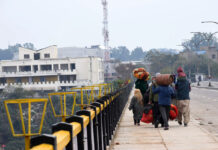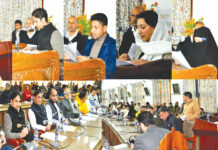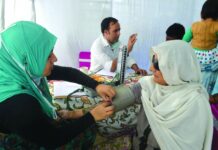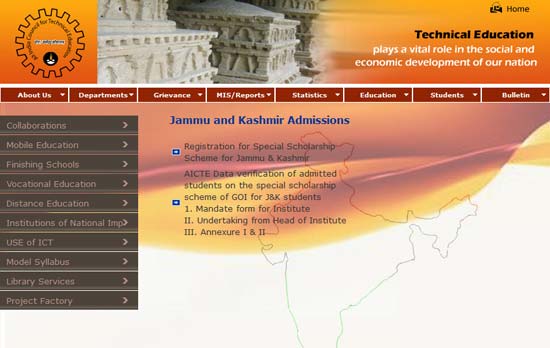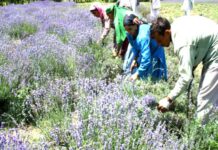After being denied permission to visit J&K consistently in the last two decades, international watchdog Amnesty International has shifted its strategy to get access by sending local staff members. Shazia Khan reports.
For the first time since the armed insurgency erupted in the valley in 1989 a team of international human rights agency Amnesty International (AI) is in Kashmir meeting various people. A two-member team of Al, Bikram Jeet Batra and Ramesh Gopala Krishnan reached Srinagar on May 17 to assess the human right situation here. Both the members are Indian and are working as researchers in the South Asian Chapter of AI.
The 6-day Kashmir visit of the Amnesty members has stirred both positive and negative vibes in the valley, with some welcoming the visit, and some questioning the team composition.
Without its presence here, AI earlier verified the situation of Kashmir by indirect means and issued statements on grave human rights abuses that included the impunity given to armed force in the form of AFSPA. Last year it also issued a statement on Shopian murder and rape case, and a year before that it demanded an inquiry into the allegations on the unidentified mass graves discovered by a local human rights group, Coalition of Civil Society.  Team member Bikram Jeet Batra told Kashmir Life that the focus of valley visit was mainly on the preventive detention of people under Public Safety Act and the laws that allow such detention.
Team member Bikram Jeet Batra told Kashmir Life that the focus of valley visit was mainly on the preventive detention of people under Public Safety Act and the laws that allow such detention.
Batra says that the purpose of their visit is to produce an unbiased report on PSA in valley. “We are meeting with all sections of the people to obtain first hand information to get a better understanding of the human right situation here,” said Batra.
Though in past two decades, Batra says that AI had continuously tried to visit Kashmir, “but often our representatives were denied travelling documents.” The Government of India never allowed Amnesty International to visit Kashmir, however, this time Batra says, “We are Indian citizens and don’t need to ask permission from government to visit any part of India including Kashmir. But we had informed the government of India and state government about our visit.”
He explained that earlier AI has no policy of hiring the nationals as researchers, but the watchdog has changed the policy to get easier access to restricted zones by recruiting the natives of the same country.
Before arriving in Kashmir, the AI team said they sought an appointment with Union Home Ministry unsuccesfully. “We even tried to approach joint secretary (Home) but he responded by saying that you can send your report to us,” said Batra.
On their six-day visit, the team met several mainstream leaders, some separatist organizations, human rights activists, lawyers and journalists besides some people who were jailed under public safety act (PSA).
Terming AI delegation’s visit as a ‘welcome step’, chairman JKLF Yaseen Malik said, “Through their visit, world will come to know about the suffering of Kashmiri people.”
Malik says that he briefed them about enforced disappearances.
Hurriyat M chairman Mirwaiz Umar Farooq also appreciated their visit. “They should responsibly assess the situation and condemn the violations and take up the issue with Central government. And if the government does not respond then they should make it public that despite their repeated approach to the government, the latter has remained silent,” said Mirwaiz.
Peoples Democratic Party President Mehbooba Mufti has also expressed hope that it would help the process of reconciliation and resolution so that human rights situation also improves in the state. The Amnesty team also met Kashmiri Pandit Sangarsh Samiti (KPSS), an organization of Pandits who did not migrate.
The AI delegation also met members of Muslim League, and family members and supporters of Shabir Shah and Nayeem Khan.
The team also met the families of some PSA victims like Nayeem Ahmad Dar of Rainawari, a minor who was last year detained under PSA and lodged in Poonch sub-jail of Jammu division and Mushtaq Ahmad Sheikh, 14, presently incarcerated in Udhampur jail.
The Bar President, Mian Abdul Qayoom said that the Bar informed the team that in past the three years, hundreds of PSA detentions were challenged in the High Court and the court quashed the detentions. “But the State instead of releasing them always took advantage of conditional orders of the High Court and made mockery of whole justice delivery system by arresting detainees in jail premises,” Qayoom said, adding, “Such laws were used to crush popular sentiment of Azadi.”
In 2008, over 400 PSA detentions were challenged in the High Court. In 2009, lawyers challenged some 300 detention orders passed by District Magistrates of different districts on the recommendations of concerned SSPs. In 2010, 169 detention orders have been challenged.
Hurriyat G Chairman Syed Ali Shah Geelani however was unimpressed. He told reporters the watchdog should have not sent Indian nationals. “Wherever an Indian works be it in AI, Central Bureau of Investigation, Intelligence Bureau or for that matter in United Nations (UN), they first keep in view their national interest,” Geelani said.
Echoing similar views, United Jihad Council spokesman Syed Sadaqat Hussain said, “We welcome Amnesty International’s visit to Valley. But our concern is that both members of the delegation are Indians who may not produce a report which could be called as unbiased or impartial”.
However, Batra says, “Many people in valley have misunderstood our mission. They presumed that we have to seek permission from the Indian government to visit here. We are Indian nationals and can visit wherever we wish to. We approached Union Home Ministry but they showed least interest. The joint secretary said they don’t wish to meet us and asked us to send the report to them,” said Batra,
He urged people to make judgments only on the basis of their work, rather than their nationality.


